UK Warns British Nationals Against Travel To Iran
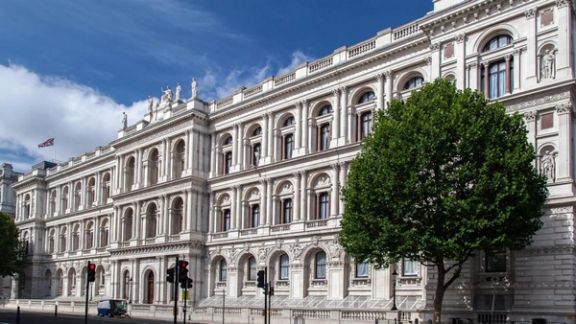
The British Foreign Office warned that British and Iranian-British citizens are significantly at risk of arbitrary detention if they travel to Iran.

The British Foreign Office warned that British and Iranian-British citizens are significantly at risk of arbitrary detention if they travel to Iran.
The Foreign, Commonwealth and Development Office (FCDO) in a notice on Thursday advised British nationals against all travel to Iran.
It warned that the British passport can make Iranian authorities target travelers and they could spend months or years behind bars.
“Our ability to provide consular assistance is extremely limited. In an emergency – such as serious deterioration in the security situation – it is extremely unlikely the British government will be able to evacuate you or provide assistance on the ground in Iran,” reads the notice.
It also cautioned the British nationals, who are already resident in Iran, that they should carefully consider their presence and the risks they are taking by remaining.
There have been several high profile cases of British-Iranian dual nationals being arbitrarily detained in Iran and forced to serve long prison sentences as part of the country's strategy of hostage diplomacy.
“The criminal justice process followed in such cases falls below international standards. If you are detained in Iran your case will be in the hands of the Iranian authorities, who have shown a pattern of hostility towards the UK and its citizens,” added the Foreign Office.
The Iranian authorities have accused people with links to the UK of inciting protests, the Foreign Office warned saying that if the nationals are in or near a protest, they are at serious risk of arrest.
“Anyone who is arrested in connection with protests and holds British nationality may come under added suspicion of espionage or working to undermine the Iranian government.”

A former Iranian diplomat says Tehran has gained little from a Chinese-brokered deal to restore ties with Saudi Arabia and made concessions that “Trump wanted.”
Abolqassem Delfi, former senior foreign ministry official and ambassador to France, in an interview with Didban website in Tehran argued that Iran made “big concessions” to Saudi Arabia but gained little in return.
“What we have achieved by the Beijing agreement can be debated and there are differences of opinion in the country. Some believe that Iran has not benefited equally from the deal as much as China and Saudi Arabia have achieved,” Delfi said.
“We have given assurances that the region will remain calm, and we should contribute to regional security. This was one of Trump’s demands…for which he withdrew from the JCPOA,” the former diplomat maintained.
Delfi was referring to an apparent Iranian pledge to change its regional policies on Yemen and Syria.
For Riyadh, relative peace in Yemen would be a relief from constant concerns about cross-border attacks by Iranian-backed Houthis and the cost of a grinding war, allowing it to focus on its grand development projects, Delfi maintained.
Regarding Syria, the Saudis wanted to bring Bashar al-Assad back into the regional Arab orbit, dominated by Riyadh, and they made gains by having the Syrian dictator attend the Arab League summit in Jeddah last week.
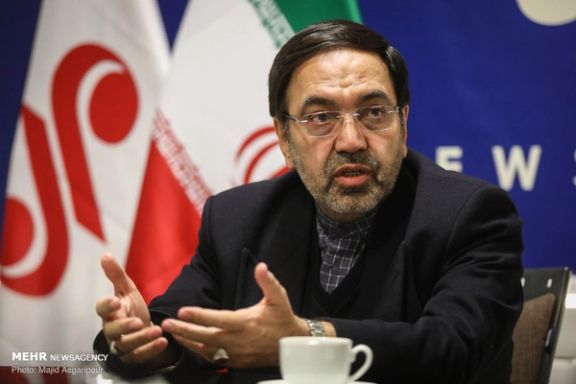
In essence, by promising to tone down its regional policies, the Islamic Republic did what former US President Donald Trump wanted from Tehran in 2018 when he withdrew from the JCPOA nuclear agreement, putting forth 12 conditions, Delfi argued.
Just days after Trump announced the US withdrawal from the JCPOA, former Secretary of State Mike Pompeo put forth 12 demands as preconditions for normalizing ties with the Islamic Republic.
Besides demanding a tougher nuclear deal and an end to its missile program, Pompeo asked Tehran to cease weapons supplies and support to its regional proxies. He also demanded that Tehran should respect the sovereignty of the Iraqi government, end its support for Yemen’s Houthis and withdraw all forces under its command from Syria.
Delfi argued that these were “big concessions” that Iran could have made in different and better circumstances in exchange for an end to most US sanctions.
When the agreement to restore relations with Riyadh was announced on March 10, Iranian officials and government media began to hint at possible economic benefits from the deal. However, so far there has been scant evidence about Saudi Arabia extending a lifeline to Iran, which has been experiencing an economic crisis since the reimposition of US sanction in 2018.
In mid-March, after the Beijing agreement, Delfi had expressed more optimistic views on the impact of restoring ties with Saudi Arabia, arguing that it could be a signal that Tehran was ready to “return to rationality” in its foreign relations.
Delfi also hinted that the replacement of Ali Shamkhani as secretary of Iran’s supreme national security council early this week might impact nuclear talks with the West, although it is too early to pass definitive judgement.

Iran's reformists appear to be hopeful for a modest political comeback, naming the new leading members the Reform Front, their umbrella organization.
As Nameh news in Tehran has reported, the Reform Front earlier this week named 15 reformist politicians as its "real persons" alongside several political entities as the "legal entities” under the umbrella organization. The development coincided with the anniversary of the 1997 presidential election which brought the country's first reformist government to power.
The members include former front chief Behzad Nabavi, former deputy foreign minister Mohsen Aminzadeh, media figure Mohammad Reza Jalaipour, religious-nationalist activist Emad Behavar, former Tehran city council chief Mohsen Hashemi and Fakhrolsadat Mohtashamipour the wife of jailed former deputy interior Minister Mostafa Tajzadeh.
According to Nameh News, former President Mohammad Khatami is still the pivot of the reform camp, but he is not likely to dictate anything to reformists. Nabavi is more likely to be elected once again as the leader of the reform front. During the past two days, several leading reformist figures wrote articles in the Tehran press to shed light on the status of the reformists who were barred from the last parliamentary and presidential elections in Iran in 2020 and 2021.
It was the Guardian Council, a constitutional body vetting candidates and controlled by Iran’s ruler Ali Khamenei that barred hundreds of candidates with adequate explanation.
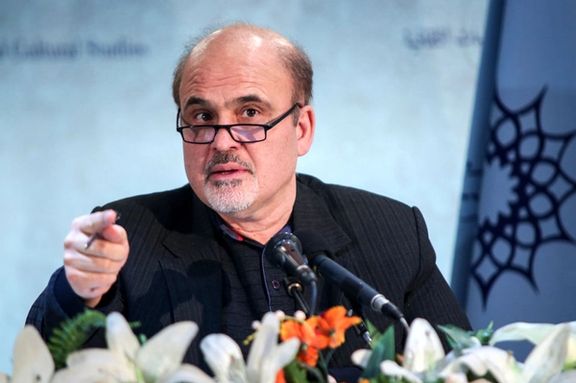
In a commentary in Etemad Online, Hamidreza Jalaipour made it clear that the protesters in Iran have shunned both reformists and conservatives in their slogans, but said: "To save the country, we need reforms rather than a regime change." He said, "The call for regime change has empowered Iran's authoritarian hardliners."
Jalaipour further explained that "The government needs to embrace reformists in order to save the country." He added that the reforms started by Khatami in 1997 have remained incomplete and it is time to revive the reformist ideas as the authoritarian hardliners have been cornered by the people.
Reformist theoretician Mohammad Reza Tajik said, "Reformists can no longer hope in change of policy through preaching and offering advice." He added that aiming to seize political power, Iran's reformists should seek to return the element of expediency to the Iranian political frameworks.
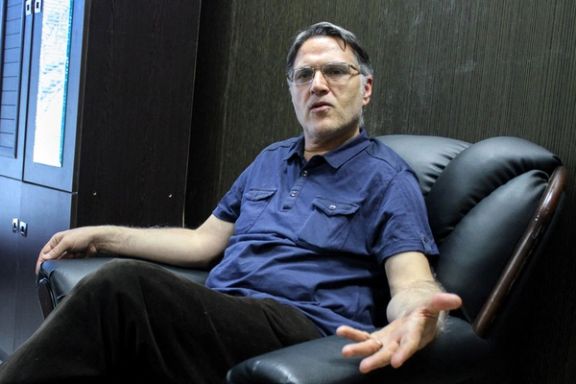
Tajik further pointed out that from a philosophical standpoint, the ideal of the Sharia is to observe the Muslims' expediency and to want what is most reasonable for them. The aim is in a nutshell to satisfy the citizens rather than seeking to serve the interests of the rulers.
Meanwhile, explaining matters in a more down to earth style, reformist activist Fayzopllah Arabsorkhi said in an interview that the government's behavior has instilled despair in the Iranian society. He added that there is no sign to indicate the government has any interest in changing its approach.
He added that there are at least ten parallel institutions that interfere with the legislative function of the parliament. Members of the parliament do not have any political power while the heads of the three government branches and numerous councils make all the decisions for the country and the people.
Arabsorkhi added that all conservative leaders are saying is that you might want other things, but what you want will not make any change in the elections. This attitude makes elections meaningless, he said.
In a report on the situation, Rouydad24 wrote that reformists are likely to become more active as we get closer to the election date in March and a list of candidates is most likely to come out of the left wing, The Islamic Revolution's Mojahedin Organization (IRMO), a party where Arabsorkhi, Nabavi and Tajzadeh come from. According to Rouydad24, IRMO the most influential reformist political organization and can be the driving force behind the reform camp's strategy for the next parliamentary and presidential elections.

A group linked to Iran is using new ransomware against a Middle Eastern adversary, researchers said.
The group calling itself Moneybird allegedly deployed the ransomware against Israeli organizations, CheckPoint's Incident Response Team investigated.
Researchers found that it resembled Agrius, a hacker group that has been around since 2020 and disguised itself with aliases like BlackShadow.
In late 2020, the group released ransomware on Shirbit, an Israeli insurance company. It also released wiper attacks on Bar-Ilan University in 2021.
Researchers at CheckPoint report that Moneybird is a new product for the group. Previous attacks were mostly carried out using ransomware known as Apostle.
Though the researchers didn't specify what types of organizations were targeted, they emphasized that the techniques used were Agrius-approved.
Threat actors gained entry via public-facing web servers and “unique variants of ASPXSPY” -- a malicious script hidden inside a “Certificate” text file.
It then moved laterally within networks, conducting reconnaissance and exfiltrating data. CheckPoint reports that the group uses "targeted paths," which allow the ransomware to disregard most files within targeted networks.
“Moneybird, like many other ransomwares, is a grim reminder of the importance of good network hygiene, as significant parts of the activity could have been prevented early on,” the researchers said.
According to Microsoft Threat Intelligence, the Iranian government is increasingly combining influence operations with cyberattacks.
Last year, they identified 24 "cyber-enabled operations" linked to the Iranian government, compared to seven the year before, and found a decline in the types of ransomware and wiper attacks Agrius usually employs.
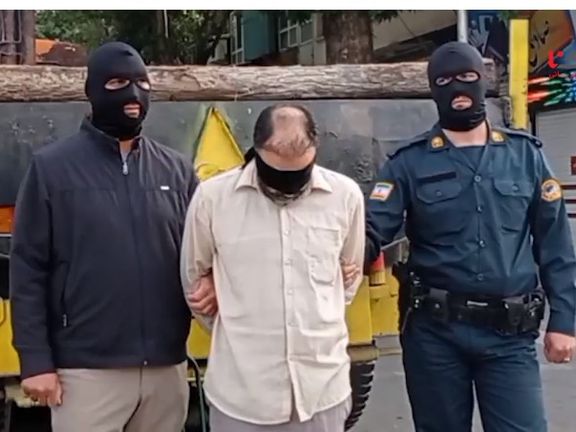
Despite mounting criticism from global leaders and rights activists, Iran executed seven more people on drugs and murder charges Thursday.
Human rights sources reported that Mohammad Daraie, Mehdi Salari, Majid Jafari, Ali Tayyeb, Ali Piri, Qaderbakhsh Dehani, and Abdol-Rasool Jamshidi were executed in Jiroft, Isfahan, Kerman, and Urmia prisons in the early hours of Thursday.
The number of executions has exceeded 110 in the last month.
Meanwhile, the Center for Human Rights in Iran (CHRI) called on world leaders to increase pressure on the Iranian regime to end the flagrantly unlawful executions of protesters and others that are on the rise.
“The Islamic Republic is hanging young protesters—after torturing them into making 'confessions' and convicting them in sham trials—and targeting minorities for executions for lesser crimes, in order to cow its restive population into silence,” said the group in a letter delivered to 75 governments around the world on Wednesday.
“Unless world leaders join forces to raise the cost to the authorities in Iran of these state-sanctioned killings, which severely violate international laws governing the death penalty, the Islamic Republic’s killing machine will gather steam and more people will unjustly die on the gallows in Iran,” said Hadi Ghaemi, CHRI Executive Director.
Over 500 protesters, including 71 children, have been killed by state security forces since the death in custody of Mahsa Amini in September. Untold others have been maimed and blinded, 22,000 people have been arrested, and raped, and many have been tortured. A UN expert on Iran has described these atrocities as crimes against humanity.
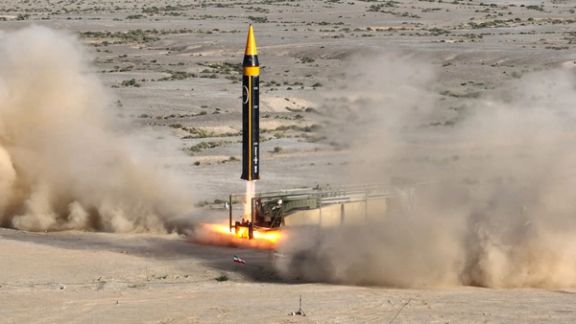
Hours after Iran unveiled its newest long-range ballistic missile, France condemned the move as a violation of the UN resolution that endorsed the 2015 nuclear deal.
"These activities are all the more worrying in the context of the continuing escalation of Iran's nuclear program", French foreign ministry spokesperson Anne-Claire Legendre told reporters at a daily briefing.
In response to Iran International, State Department spokesperson Matthew Miller said, “Despite restrictions on Iran’s missile-related activities under UN Security Council resolution 2231, Iran continues to seek a range of missile technologies from foreign suppliers and to conduct ballistic missile tests in defiance of the resolution.”
United Nations Security Council resolution 2231 was passed in 2015 to endorse the Iran nuclear deal -- the Joint Comprehensive Plan of Action (JCPOA), through which the Islamic Republic is obligated not to conduct “any activity” related to ballistic missiles capable of delivering nuclear weapons.However, the language of the resolution is ambiguous, leaving it open to interpretation.
Earlier in the day, Iran successfully test-launched the fourth generation of its Khorramshahr ballistic missile, called Kheibar, with a range of 2,000 kilometers (about 1242.74 miles).
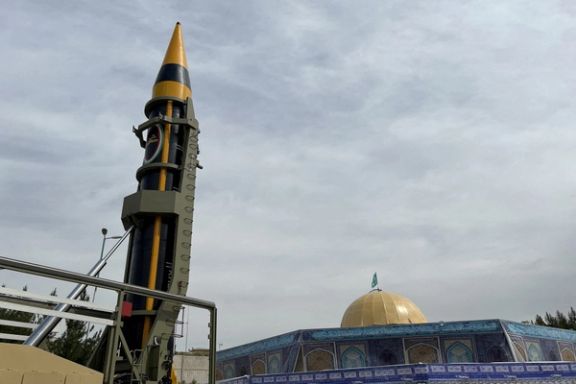
Miller warned that "Iran’s development and proliferation of ballistic missiles poses a serious threat to regional and international security and remains a significant nonproliferation challenge."
Western officials say that although the launches go against 2231, they are not a violation of the core nuclear agreement between Iran, Britain, China, France, Germany, Russia and the United States.
Since the US has withdrawn from the deal, it reneged its right to dictate any course of action and European countries have only months to do anything because UN Security Council restrictions on missiles and related technologies last only until October 2023, after which time Iran is free to pursue its ballistic missile activity.
The US state department spokesperson, however, told Iran International that Washington "continues to use a variety of nonproliferation tools, including sanctions, to counter the further advancement of Iran’s ballistic missile program and its ability to proliferate missiles and related technology to others."
The United States, France, and the United Kingdom are also arguing that Russia and Iran are violating UN Security Council Resolution 2231 by Tehran sending military drones to Moscow. While US spokesman Vedant Patel said in December that he was “not going to get ahead of the UN internal deliberations,” there has been chatter for months that the US wants to restore UN sanctions against Iran under a ‘snapback’ procedure in the JCPOA.
The JCPOA lifted international sanctions against Iran in return for strict limits on the Iranian nuclear program. Under the terms of the JCPOA, the sanctions can ‘snapback’ if Iran violates the agreement.
"Iran's activities pose serious and increased non-proliferation risks without any credible civilian justification," the French spokeswoman said."We expect Iran to respect its international obligations ... and carry out concrete and tangible progress before the Board of Governors meeting," Legendre added.
Iran began breaching JCPOA limits such as enriching uranium to 60 percent rather than the permitted 3.67 percent, and by using more advanced centrifuges, in 2019, the year after former President Donald Trump withdrew the US from the 2015 agreement and imposed ‘maximum pressure’ sanctions.
Legendre's reference to the escalation of Iran's nuclear program comes just 10 days before the International Atomic Energy Agency's 35-nation Board of Governors meets in Vienna.
Ahead of the last board meeting in March, the IAEA and Iran said they had agreed to make progress on various issues, including a long-stalled IAEA inquiry into uranium particles found at three undeclared sites in Iran. They also agreed to re-install all extra monitoring equipment, such as surveillance cameras, at nuclear sites that was put in place under the JCPOA, but then removed last year as the deal unraveled following the US withdrawal in 2018.